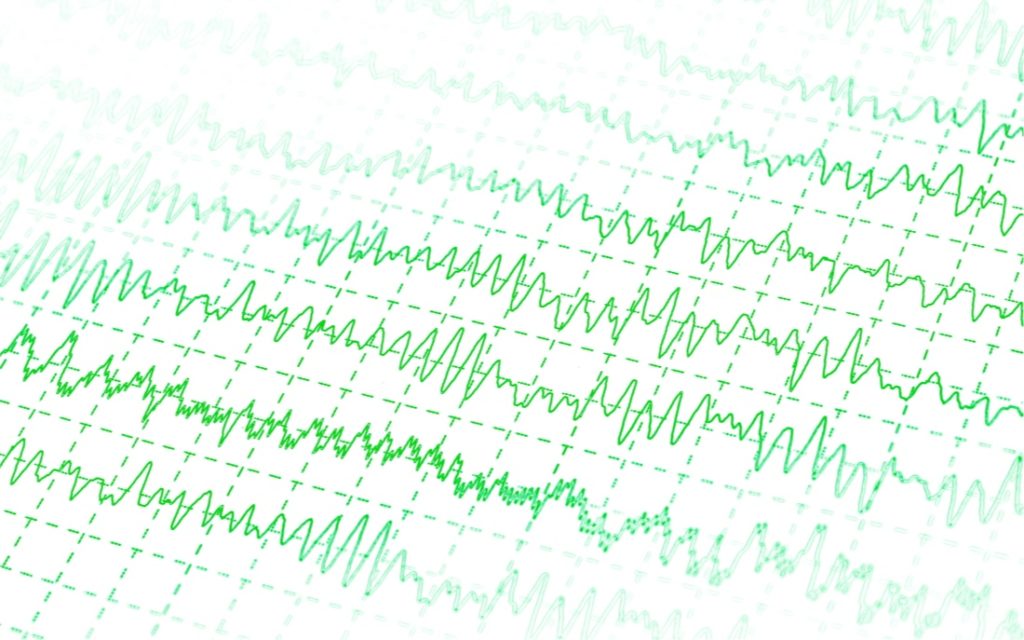Quick Hits
Daily brief research updates from the cognitive sciences

There have been numerous brain areas associated with empathy and feeling for others – some of which I have written about in other places. However, researchers at the Institute for Basic Science in South Korea have now discovered a new signature and underlying neural mechanisms to empathy.
Empathy is a critical aspect of human sociality giving us the capacity to sense, feel, and share the emotions of others. But the biological mechanisms are also shared with other animal – including rodents. This study focused on “observational fear”, commonly used in scientific research as a basic form of emotional contagion and affective empathy.
In this experimental protocol, one mouse is given a small electrical shock, poor mouse. Another can see this through a transparent screen. The observer mouse will also immediately exhibit a fear response and freeze. What the researchers were able to do is to see that this empathetic fear response is different to the first-hand experienced fear response and is coordinated by brain waves that are synchronised between different brain regions. Specifically, two areas, one called the Anterior Cingulate Cortex (ACC) which helps with attention, and a part of the Amygdala (BLA) which is involved in fear and threat detection.
In the observer mice there was a pattern of increased slow waves, 5-7Hz (theta brain waves), between these two regions. In the mice that experienced the shock, and therefore a fear response, slow waves were only seen in the Amygdala. This suggests two different patterns. The researchers then tested the causality to see if this does indeed trigger this behaviour. What they found is that if they inhibited the rhythms in the ACC-BLA circuit then it significantly impacted the observational fear freezing.
Furthermore, this seems to be controlled by another regions in the brain known as the hippocampus which is generally responsible for memory and navigation. Hippocampus theta rhythms seem to coordinate these regions – similarly by disrupting the hippocampal theta rhythms observational fear freezing was inhibited or increased.
So, this gives us some clear evidence that empathy is also driven by coordination between different brain regions and coordinated by the hippocampus. Whether this is for all types of emotions is another question but intriguing it is.
For us human beings there is no obvious way to synchronize theta brain waves – so no help on the horizon for those lacking empathy – or to turn it down either!

Andy Habermacher
Andy is author of leading brains Review, Neuroleadership, and multiple other books. He has been intensively involved in writing and research into neuroleadership and is considered one of Europe’s leading experts. He is also a well-known public speaker, speaking on the brain and human behaviour.
Andy is also a masters athlete (middle distance running) and competes regularly at international competitions (and holds a few national records in his age category).
References
Seong-Wook Kim, Minsoo Kim, Jinhee Baek, Charles-Francois Latchoumane, Gireesh Gangadharan, Yongwoo Yoon, Duk-Soo Kim, Jin Hyung Lee, Hee-Sup Shin.
Hemispherically lateralized rhythmic oscillations in the cingulate-amygdala circuit drive affective empathy in mice.
Neuron, 2022
DOI: 10.1016/j.neuron.2022.11.001
More Quick Hits
Behaviour at eight helps predict midlife health behaviours
A long-term study in Finland has tracked children from the age of eight until the age of 50 and a new analysis of the data, just published, has looked at some of the correlations between socioemotional behaviour in childhood and later life achievement and health...
Psychedelics and consciousness
Psychedelics change our conscious experience of the world – that is part of their attraction. Now a new study out of John Hopkins Medicine has analysed data on attributions of consciousness to other animals and innate objects by those using psychedelics and how this...
Lower smartphone usage increases wellbeing
So much has been said about smartphone usage in modern times. This ranges from some who say that they are destroying our brain to others who see they benefit our cognition by outsourcing cognitive heavy tasks like remembering lists of phone numbers – thereby freeing...
Modesty preferred for cooperative teams
In an age where it appears that many people are vying for self-esteem especially through social media, this research is interesting. Particularly in business contexts where cooperation is king. Research has previously shown that appearing to be wealthy increases...
Poverty shrinks babies’ brains
Quick HitsDaily brief research updates from the cognitive sciences couple of studies have just been released which look at the brains of newborns and young babies. The results are worrying for any society. Brain scans of newborn babies from...
Babies born with five from seven functional brain networks
In the 1950s the blank slate theory was the most prominent theory ascribed to babies. They are born blank slates and then their experiences allow them to develop their networks thoughts, associations, etc., and just about everything else. Though this theory is long...






